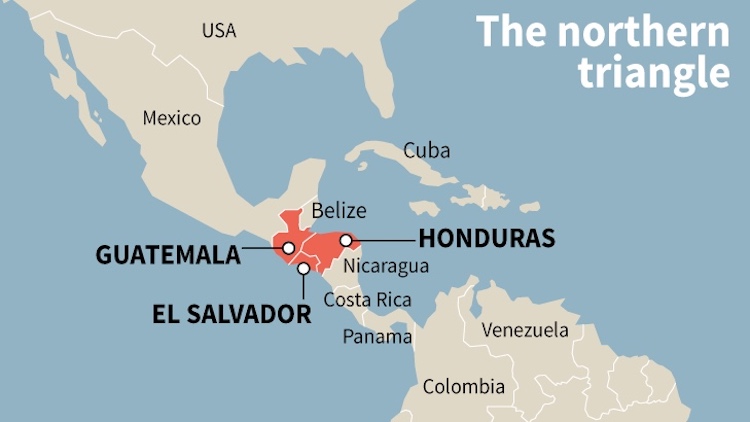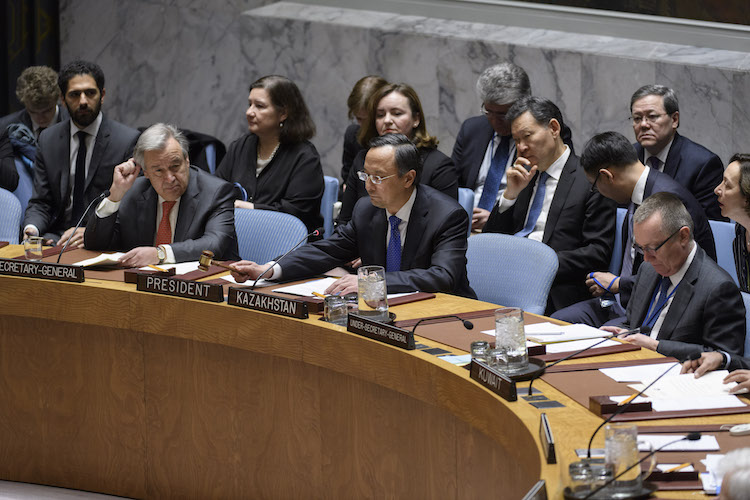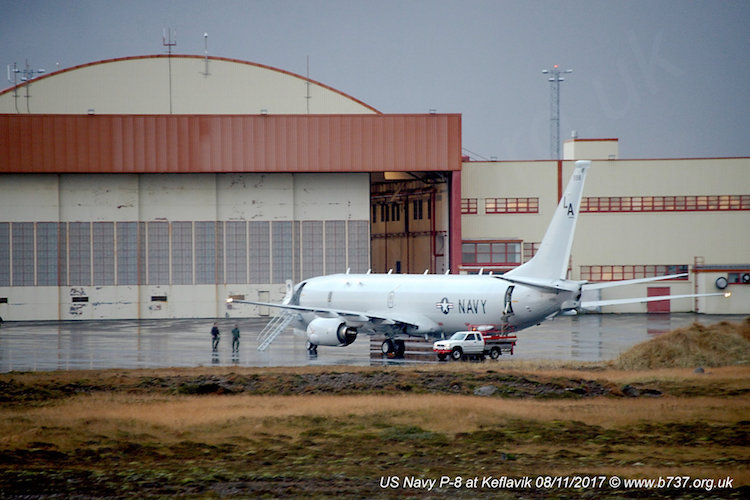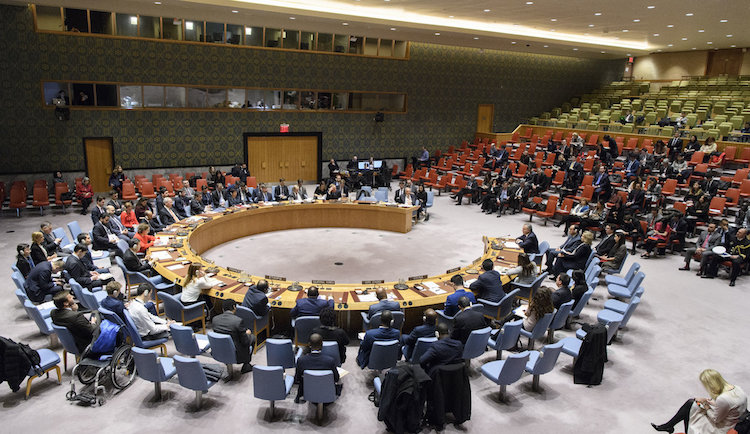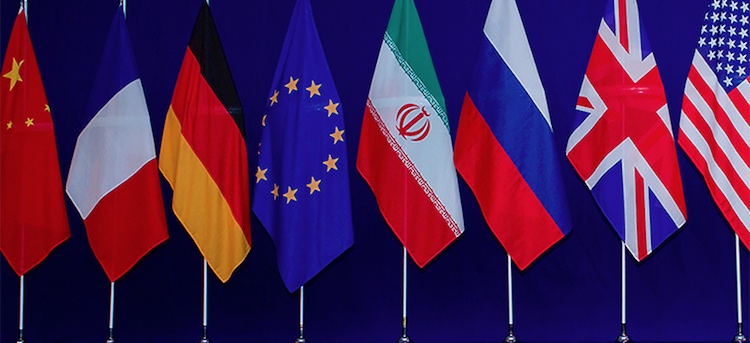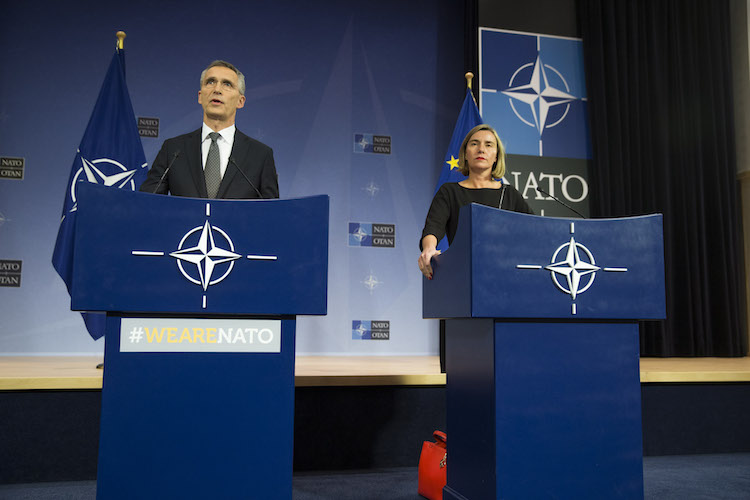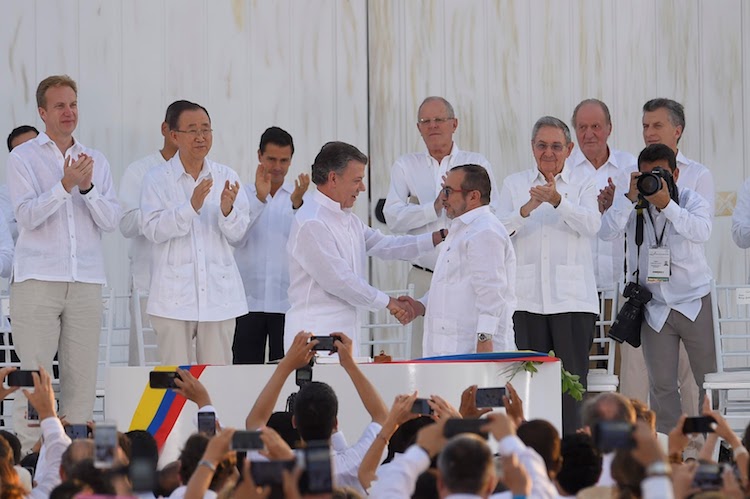By Jaya Ramachandran GENEVA (IDN) – Almost half of global investment stock is either located in the United States or owned by American multinationals abroad. The United States ‘Tax Cuts and Jobs Act’, adopted in December 2017, will therefore significantly affect both investment into the U.S. and the investment positions of U.S. firms abroad, according […]
What Prosperity for Central America Under US Hegemony?
Viewpoint by Marcelo Colussi* GUATEMALA CITY (IDN) – Between 50 and 60 percent of the inhabitants of the three countries of the so-called Northern Triangle of Central America (El Salvador, Guatemala and Honduras) live below the poverty line, and this structural and chronic poverty is compounded by alarming rates of delinquent violence (largely a product […]
Security Council Focuses on Afghanistan, Central Asian States
By J Nastranis UNITED NATIONS (IDN) – The 15-nation United Nations Security Council has reiterated its commitment to the sovereignty, independence and territorial integrity of Afghanistan and the Central Asian States. Before debating the pressing challenges ahead, the Council adopted a presidential statement on January 19, expressing its continued support to the UN Secretary‑General’s call […]
NATO Demands Cause Headaches in Iceland
By Lowana Veal REYKJAVIK (IDN) – In February 2016, the U.S. government started discussions with its Icelandic counterpart on the possibility of carrying out necessary changes to the doors of the NATO hangar at Keflavik airport so that newer, larger submarine reconnaissance planes could be housed there. The matter was eventually concluded in December 2017, […]
UN Concerned as Ex-Rebels Threaten Peace Efforts in Colombia
By J Nastranis UNITED NATIONS (IDN) – Nearly six weeks after the Security Council on November 30, 2017 marked the one year anniversary of the signing and entry-into-force of the peace agreement between the Government of Colombia and the Revolutionary Armed Forces (FARC-EP), peace efforts remain challenged by the task of reintegrating 14,000 former rebel […]
U.S. Decision to Respect Iran Deal Obligations Averts Self-Made Crisis But Uncertainty Persists
By J C Suresh TORONTO (IDN) – One day after the European Union reiterated its commitment to support “the full and effective implementation of the agreement” with Iran, the Trump Administration announced on January 12 that it will continue to waive sanctions on the Islamic Republic in accordance with U.S. commitments under the 2015 nuclear […]
Donald Trump’s Nuclear Posture Rather Menacing
By Daryl G. Kimball Daryl G. Kimball is Executive Director of the Arms Control Association. This article first appeared with the caption ‘Trump’s More Dangerous Nuclear Posture’. WASHINGTON, D.C. (IDN-INPS) – Just one year ago, Vice President Joe Biden delivered an address touting the progress achieved during the Obama years to reduce the salience and […]
UN Expert Reveals Shocking Facts about Poverty in the U.S.
By J C Suresh TORONTO (IDN) – More than one in every eight Americans, numbering 40 million, equal to 12.7 % of the population, are living in poverty, and almost half of those – 18.5 million – in abysmal poverty, according to a new report. Though the United States is one of the world’s richest, […]
Despite Differences, New Areas of NATO-EU Cooperation Agreed
By Jaya Ramachandran BRUSSELS (IDN) – Against the backdrop of growing estrangement between the European Union (EU) and the United States with Donald Trump at the helm of affairs, 23 member states of the European Union (EU) signed up on November 13 for the permanent structured cooperation (PESCO) on defence. In spite of persisting differences, […]
Were ‘Timochenko’ to Become President of Colombia
Viewpoint by Marcelo Colussi* GUATEMALA CITY (IDN) – Rodrigo Londoño Echeverri, known by his nom de guerre ‘Timochenko’, of the Revolutionary Armed Forces of Colombia (FARC) has recently announced that he intends to run for the presidency of his country. It is difficult to predict what will happen in the next presidential elections in May […]


